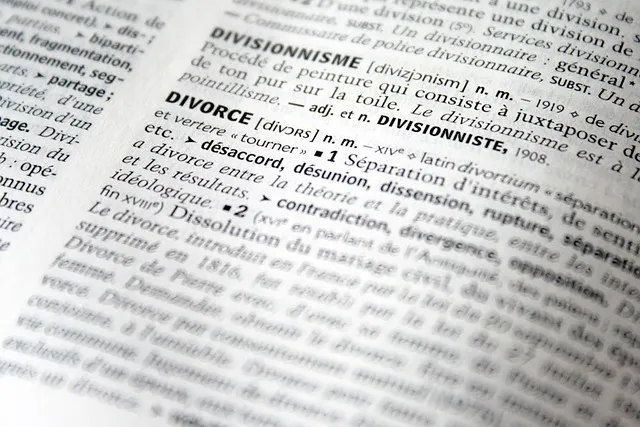Legal separation mediation offers a collaborative and efficient alternative to traditional litigation for couples seeking to resolve marital disputes amicably. By engaging a trained mediator, pairs can negotiate terms for their separation with fixed fees, predictable costs, and transparent pricing, addressing crucial aspects like child custody, spousal support, and asset division. This approach fosters open communication, mutual understanding, and tailored agreements, providing a more positive divorce experience while maintaining control over the process. Mediators expertly guide couples through complex issues, facilitating flexible solutions without the emotional toll or high costs of court battles. Preparing for mediation involves open communication, document gathering, and choosing transparent cost models to ensure an informed and accessible process.
“Tired of the legal battle and ready for peace? Professional divorce mediation services offer a non-litigious approach, guiding couples through complex issues like child custody, spousal support, and asset division. This article explores ‘legal separation mediation’ as a game-changer, highlighting its benefits over court trials. Learn about the step-by-step process, the crucial roles of mediators, common issues resolved, and essential tips for preparing for success. Discover why choosing mediation is a wise step towards amicable settlements.”
- Understanding Legal Separation Mediation: A Non-Litigious Approach
- Benefits of Choosing Mediation Over Court Trials
- The Process: How Mediation Sessions Unfold
- Key Roles: Mediators and Their Impact on the Settlement
- Common Issues Resolved Through Mediation
- Preparing for Success: Tips for Couples Engaging in Mediation
Understanding Legal Separation Mediation: A Non-Litigious Approach

Legal separation mediation is a non-litigious approach where couples work with a trained mediator to negotiate terms for their separation. Unlike traditional litigation, which can be lengthy and costly, this process empowers couples to make decisions collaboratively, fostering a more amicable environment. The mediator acts as an impartial third party, guiding discussions and helping the couple reach agreements on child custody, spousal support, and asset division.
This method offers significant advantages, including transparent pricing divorce solutions and predictable cost mediation. Unlike hourly billing common in legal proceedings, many mediators offer one-time fee divorce help, providing couples with clear upfront costs, eliminating unexpected bill shocks, and promoting a more efficient resolution process.
Benefits of Choosing Mediation Over Court Trials

Choosing legal separation mediation over court trials offers numerous benefits for couples going through a divorce. One significant advantage is the more amicable and cooperative environment it fosters. Mediation sessions encourage open communication, allowing both parties to actively participate in negotiating terms that work best for their unique situation. This approach can lead to agreements that better reflect each individual’s needs and desires, fostering a sense of mutual understanding and respect throughout the process.
Mediation also provides a more predictable cost structure, typically involving a one-time fee divorce help model or unlimited session options, as opposed to the unpredictable expenses associated with court litigation. This predictability can significantly reduce financial stress during an already emotionally challenging time. By avoiding the formal courtroom setting, couples can maintain control over the process, ensuring their voices are heard and that outcomes align with their aspirations for the future, be it joint custody arrangements or fair asset division.
The Process: How Mediation Sessions Unfold

In professional divorce mediation services, sessions are designed to be collaborative and solution-focused. The process begins with an initial consultation where both parties meet with a trained mediator who listens to their concerns, goals, and wishes for the future. This step is crucial as it sets the tone for open communication and mutual understanding throughout the mediation process.
During subsequent sessions, the mediator facilitates discussions on key issues such as child custody, spousal support, and asset division. These meetings are structured to encourage active participation from both individuals, fostering a sense of shared responsibility and mutual respect. The mediator helps navigate complex legal aspects, ensuring transparency and clarity. Unlike litigation, mediation allows for flexible and personalized solutions, with the ultimate goal of reaching an amicable agreement that meets the needs of both parties—all without the high costs and emotional toll often associated with traditional legal separation processes. Moreover, many services offer transparent pricing models, such as a one-time fee for divorce help, ensuring financial clarity during what can be a stressful time.
Key Roles: Mediators and Their Impact on the Settlement

Mediators play a pivotal role in facilitating legal separation mediation, guiding couples toward mutually agreeable solutions. Their expertise lies in fostering open communication, helping partners navigate complex emotions and negotiate fair terms for child custody, support, and asset distribution. By employing strategies tailored to each unique situation, mediators create an environment conducive to collaboration rather than confrontation.
Unlike traditional litigation, which can be lengthy and costly, this approach ensures a predictable cost mediation process with no hourly billing. The focus shifts from competition to cooperation, allowing couples to preserve their relationship—if only as co-parents—and reach settlements that best serve the needs of both parties and their children, without the stress and uncertainty of court battles.
Common Issues Resolved Through Mediation

In the context of legal separation mediation, couples can resolve a variety of complex issues that often arise during divorce proceedings. Common challenges include determining child custody arrangements, establishing fair spousal support or alimony, and equitably dividing marital assets. Through mediation, these matters are addressed in a collaborative rather than adversarial manner. This approach encourages open communication and mutual understanding between both parties, fostering a more amicable resolution.
Unlike litigation, which can be lengthy and costly, mediation offers a cost-effective alternative with transparent pricing structures. Many services offer a one-time fee for divorce help or unlimited session options, catering to diverse needs and budgets. This flexibility ensures that couples have access to professional guidance without the financial burden often associated with traditional legal processes.
Preparing for Success: Tips for Couples Engaging in Mediation

Preparing for success in legal separation mediation requires a collaborative and proactive approach from both partners. First, couples should engage in open and honest communication about their needs, desires, and expectations. This includes discussing financial obligations, parenting plans, and any potential points of contention. By doing so, they can set clear goals and work towards mutually agreeable solutions.
Additionally, it’s beneficial to gather relevant documents and information, such as financial statements, tax returns, property deeds, and insurance policies. This prepares mediators and helps facilitate a smoother process. Opting for a predictable cost mediation model or a one-time fee divorce help service can also alleviate stress by offering transparent pricing and ensuring couples understand the associated costs from the start, allowing them to make informed decisions throughout the mediation process.
